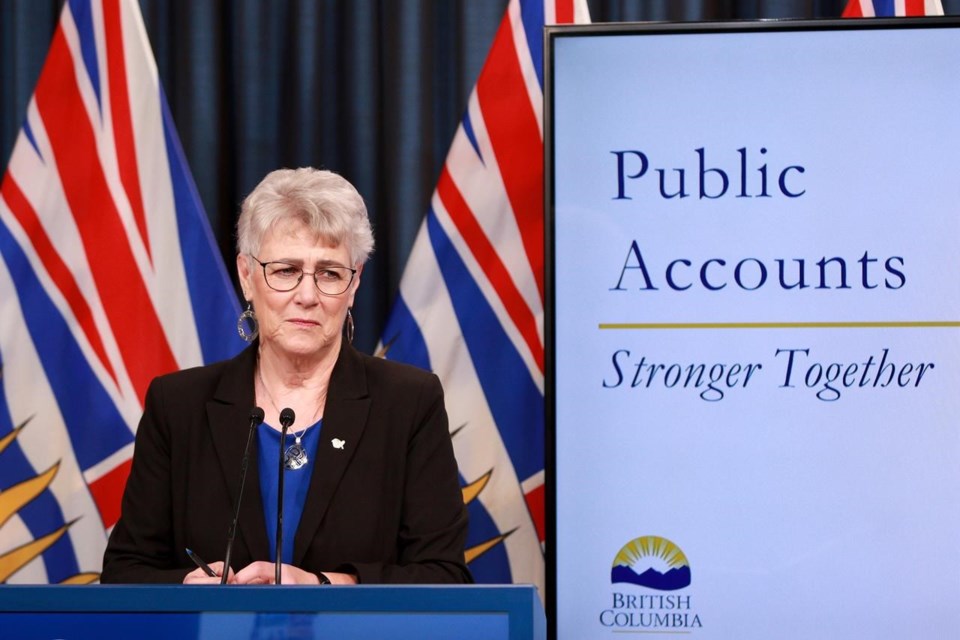Global financial pressures and Canada's inflation rate challenges are major contributing factors in a forecast of slower growth for British Columbia's economy.
Finance Minister Katrine Conroy said Tuesday that B.C.'s economy is now projected to grow by about one per cent this year, a dip from the forecast in September of 1.2-per-cent growth.
The slowdown is expected to continue in 2024, with the latest quarterly financial outlook from the Ministry of Finance forecasting economic growth of 0.7 per cent, Conroy told a news conference.
"We want to be prudent in our forecast and we know that's what the economic forecasters, the private forecasters, are predicting," said Conroy.
The most recent data from Statistics Canada pegged the national inflation rate at 3.1 per cent, with B.C. at 2.7 per cent.
The budget's September deficit forecast of $6.7 billion has shown improvement, dropping by $1.1 billion, with this year's deficit now projected at $5.6 billion, she said.
Higher revenues of about $1.4 billion contributed to the reduced deficit projection, Conroy said.
The revenue boost came from more personal and corporate income tax from the Canada Revenue Agency and extra wildfire recovery money from the federal government.
The minister said costs for this year's wildfire budget have risen to $987 million.
Conroy, who will table the government's 2024 budget on Feb. 22, said employment growth in B.C. expanded by 1.4 per cent, while B.C.'s population grew by three per cent.
The New Democrat government introduced several initiatives in recent weeks aiming to increase housing stock and affordability, including restrictions on short-term rental accommodations, easing of local house-building permits and encouraging more growth in public transit areas.
People's budgets have been squeezed by global inflation and continued high interest rates make the already expensive cost of buying or renting a home more costly, she said.
"We're stronger when we work together," Conroy said.
Conroy acknowledged the Ministry of Finance still expects high interest rates to weigh on the housing market, projecting a drop in housing starts from 47,400 units this year to 42,900 units in 2024.
She said her ministry is being "prudent" with its housing forecasts, but she and Housing Minister Ravi Kahlon are "a bit more optimistic."
This report by The Canadian Press was first published Tuesday, Nov. 28, 2023.
Dirk Meissner, The Canadian Press



